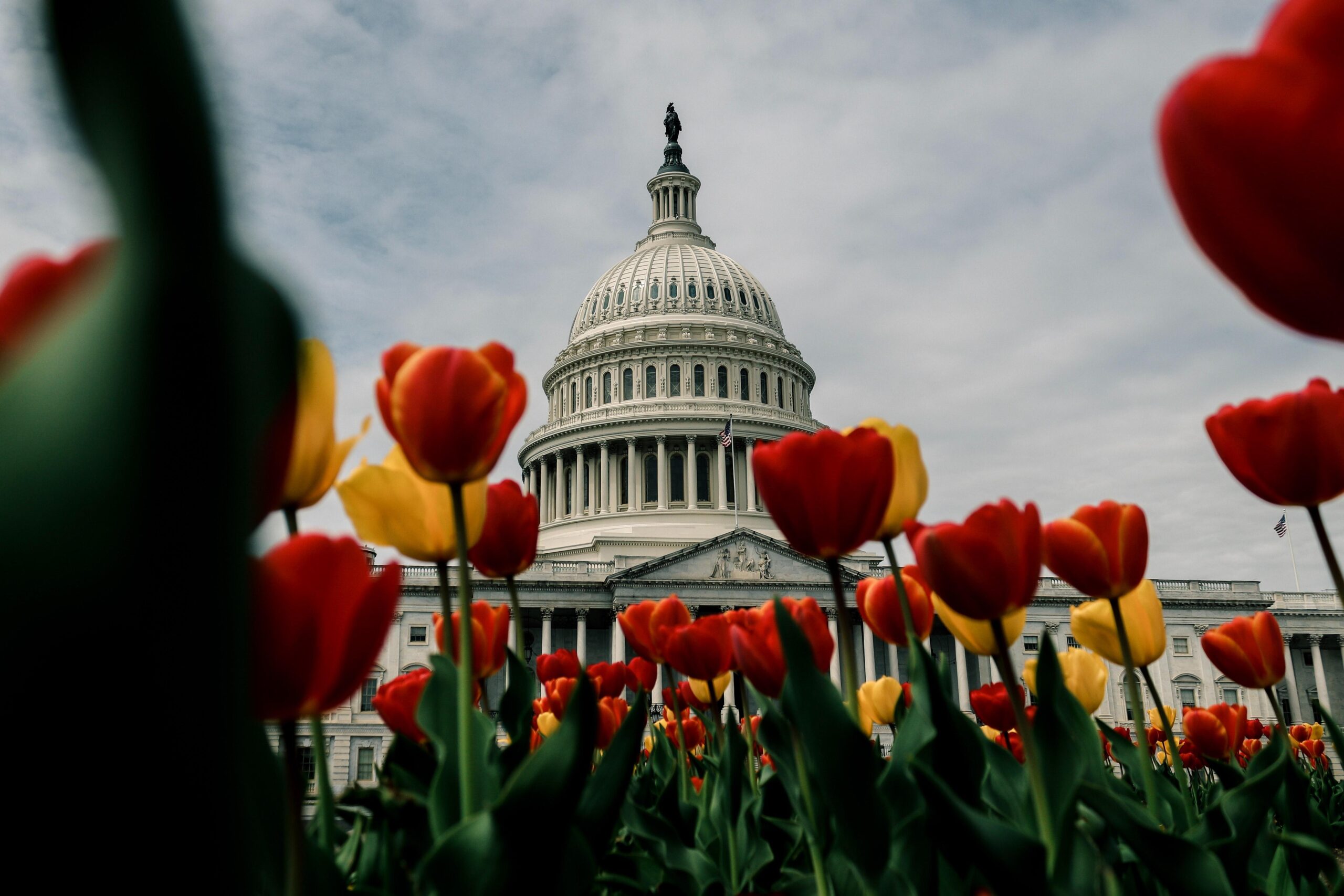
Photo by ElevenPhotographs on Unsplash
Back in early September of 2020, when fewer than 200,000 Americans had yet died as a result of COVID-19, reality TV “businessman” Donald Trump was somehow the president of an entire country.
And he wanted everyone to “love” that country as much — and as selectively — as he did. So when Nikole Hannah-Jones’ 1619 Project with The New York Times began winning awards and being taught in classrooms, he knew he had to act.
It was bad enough with people protesting in the streets against racialized violence today, but trying to place that injustice in a context of an ongoing pattern of racialized oppression was too much. Establishing an advisory committee to promote “patriotic education,” Donald Trump tasked his 1776 commission with combatting the 1619 Project’s unflattering focus on chattel slavery and its continued legacy.
The 1619 Project details the legacy of slavery in Americawww.youtube.com
What Unity?
Four months later, 200,000 more Americans have died of COVID-19, and Joe Biden has been elected to replace Donald Trump. An attempted coup failed to overturn the election, and many of the same political figures who stirred up the sentiments of insurrection — and still refuse to acknowledge Biden’s legitimate victory — have been calling for “unity.”
Those calls were echoed in Joe Biden’s inauguration speech, but there has remained a question of what kind of unity they mean. And in that context, the 1776 Commission — which Biden has pledged to disband — released a report in the lead-up to inauguration day, clarifying what kind of “unity” they mean.
It’s a unity not of solidarity, empathy, and shared struggle, but of erasure, appropriation, and myth. The report’s primary contention seems to be that a more critical perspective on America’s history is necessarily both skewed and harmful. That perspectives like Hannah-Jones’ are actively and deliberately destructive of our “united” American spirit, and lead us, somehow — inexplicably — toward tyranny.
The Founding Fathers: Context and Contradictions
The report argues that — given the context of their horrifying and disturbing time period — we should be in awe of the fact that the Founding Fathers could recognize and articulate a concept of universal rights, even if they didn’t quite live by their stated principles. And that America eventually achieved a society where universal rights were properly enshrined and should have stopped trying to fix apparent injustices decades ago.
It’s clear that the report is referring to the 1619 Project — and similar work centering the experiences of oppressed and ignored groups in America’s history — when it talks of “deliberately destructive scholarship.” According to the report, this kind of scholarship, “shatters the civic bonds that unite all Americans.”
It’s better to focus on stories like George Washington’s virtuous decision to finally, posthumously free the dozens of human beings he kept enslaved for so many years. Like the parable of the cherry tree, it almost doesn’t matter that Washington’s decision to grant them their freedom was never truly carried out… almost.
It’s taken for granted that looking seriously at the crimes of our nation’s past — and noting the continued legacy of those crimes — is divisive. That the only way to unite is to focus narrowly on what inspires “reverence and love” for our history and to refer to that narrow focus as “viewing our history clearly and wholly.” To do otherwise “silences the discourse essential to a free society by breeding division, distrust, and hatred among citizens.”
It’s certainly true that a close look at the enslavement of millions of Black men, women, and children in what may be history’s most extensive and systematic project of dehumanization does not tend to inspire the kind of reverence Donald Trump wanted Americans to feel for their country — and for him.
Unearthing Sally Hemings’ legacy at Monticellowww.youtube.com
The 1776 commission doesn’t want you to ask why Washington didn’t grant those people their “unalienable” freedom while he was alive. Or why other founding fathers — like Thomas Jefferson, who enslaved hundreds — didn’t make even this lukewarm gesture toward emancipation.
Being offered now as a corrective to more serious scholarship, it repeatedly insists that our nation’s founders — who drank more beer than water, wore powdered wigs rather than bathing, and enslaved their own children of rape — should be viewed with “reverence” and as “heroes.”
According to the report, it is at once necessary to understand them in the context of a time period in which enslaved people were a foundational part of America’s economic system — a system which served those founders well — and to ignore what that foundation might say about a country asserting natural rights as the reason for its very existence. Note the context. Ignore the contradictions.
Myths, Fallacies, and Hypocrites
As for its take on that historical context, the report continually perpetuates myths and fallacies that cast a positive light on America’s early history. King George III, for instance, is held up as the Declaration of Independence’s caricature of “a despotic king who violated the people’s rights and overthrew the colonists’ longstanding tradition of self-government.”
In reality, England had long since adopted a constitutional monarchy in which the bulk of decisions were made by the parliament. Framing those decisions as — in the report’s words — “the capricious whims of a tyrant,” made for a better story.
In reality, the American colonists — particularly the wealthy merchants and plantation owners among them — resented being governed and taxed by distant politicians elected without their consent. It’s a reasonable objection, though it’s painful to note that the same objections can now be made by the residents of Puerto Rico and other American territories.
Puerto Ricans voted for statehood. Will it happen?www.youtube.com
If those American citizens — subject to taxation without representation — framed that relationship as tyranny, would the 1776 commission treat calls for liberty or statehood with the same reverence? Based on the report, it seems more likely that the commission would dismiss them as telling a story “of oppression and victimhood.”
While it’s no doubt true that America’s founders were hugely influential in the history of political thought — and that the documents they wrote formed a foundation for the advancement of civil rights both at home and abroad — it would be foolish to treat their ideas and their motivations as pure. They applied their high-minded principles primarily when it served their interests to do so.
Another way to put that would be to say that they were hypocrites. But when the report talks about the blatant contradictions, words apparently speak louder than actions: “What is momentous is that a people that included slaveholders founded their nation on the proposition that ‘all men are created equal.'”
We are to take it for granted that this sentiment was simply on a delay when applied to women and particularly to the people who were bought, sold, branded, bred, and worked like livestock.
An understanding of how that same dehumanization was carried forward not just in sharecropping and Jim Crow, but in Confederate memorials, the war on drugs, and predatory loans — in “welfare queens,” “superpredators,” and “all lives matter” — would be far less flattering.
“Equality of Opportunity” and “Shared Heritage”
Instead, the commission’s report consistently conflates efforts at restorative justice with the evils they are intended to address. On the topic of affirmative action and identity politics, the report says, “This new creed creates new hierarchies as unjust as the old hierarchies of the antebellum South, making a mockery of equality with an ever-changing scale of special privileges on the basis of racial and sexual identities.”
Better to ignore the ways in which historic injustices persist — the fact, for instance, that white families have nearly eight times the wealth of Black families. Whitewash those details and sell a story of meritocracy and “equality of opportunity,” ignoring outcomes that fundamentally imply that Black Americans have less merit.
Better to talk about a “shared heritage.” Better to ignore how the progeny of the enslaved have yet to share in the advantages left to the progeny of the wise and noble white thinkers who enslaved them.
Even when addressing the injustices of sharecropping in the reconstruction era, the report avoids the idea that vulnerable people were horribly exploited — as that sort of reasoning could likewise be applied to the dynamics of wage labor today. Instead, the report indicates that the system “enmeshed freedmen in relationships of extreme dependency,” echoing conservative attacks on social programs that serve our nation’s most disadvantaged.
Co-Opting MLK’s Dream
Worse still, for a report released on Martin Luther King Jr. Day, is the way the commission abuses the message of the civil rights era — and King in particular.
When discussing the concept of identity politics — that oppressed groups must work together to advocate for their interests — the 1776 commission claims that this ethos”values people by characteristics like race, sex, and sexual orientation” and is thus “the opposite of King’s hope that his children would ‘live in a nation where they will not be judged by the color of their skin but by the content of their character.'”
Of course this is patently absurd. King and other civil rights leaders of his era plainly believed in the importance of people united by a shared struggle fighting for equality. And just as concepts like poll taxes and literacy tests were once used to disenfranchise Black voters — without explicitly mentioning race — there are aspects of our society that selectively disadvantage certain groups without expressly stating that aim.
That means over-policing of Black and Latinx neighborhoods, women receiving less pay for equal work, or school funding being inexplicably tied to property values. There is nothing about the affected groups organizing for their interests that is in conflict with King’s values, nor with the principles of America’s founding.
Martin Luther King Jr.: ‘The Economic Problem Is the Most Serious Problem’www.youtube.com
On the contrary, that struggle is inherent in the “unalienable right” to the pursuit of happiness and enshrined in the first amendment. And pretending that oppressed groups are past the need for this kind of action or the protection it can win only sets us back. When the Supreme Court gutted the Voting Rights Act in 2013, it brought us right back to the era of poll taxes, with a surge of voter suppression that doesn’t mention race, yet manages to target Black voters “with almost surgical precision.”
As is so often the case, the report ignores the true history of Martin Luther King’s unpopularity among white Americans of his time. They treat him in death as uncontroversially loved, appropriating his message to evoke a false contrast between the current protest movement — which is portrayed as disruptive and divisive — and the movement of the 1960s.
If you were to believe the report, the latter “presented itself, and was understood by the American people, as consistent with the principles of the founding.” In reality — the movement’s relationship to the principles of the founding aside — Martin Luther King was never particularly popular in America. And in the years before his assassination, one Gallup poll showed that 63% of Americans held an unfavorable view of King, compared to just 33% with a favorable view.
This was due in part to protests which rankled the same type of person offended by Colin Kaepernick and Black Lives Matter — white moderates whom king described as preferring “a negative peace which is the absence of tension to a positive peace which is the presence of justice.” But it was also in response to King’s harsh criticism of American activity in the Vietnam war and to his advocacy for a multiracial “Poor People’s Campaign” uniting working class Americans to correct the injustices of capitalism.
King and Guthrie — This Report Erases Socialists
But of course the 1776 commission would be unlikely to acknowledge that King once described himself as “much more socialistic in my economic theory than capitalistic.” They had to erase that aspect of his life in order to appropriate him for their skewed, elitist version of individual liberty.
After all, according to the report, socialism “leads down the same dangerous path of allowing the state to seize private property and redistribute wealth as the governing elite see fit.” As opposed to wealth being distributed only as the billionaires see fit…
As foolish as this mischaracterization of King is, it is hardly the commission’s most absurd omission. That distinction goes to the report’s invocation of Woody Guthrie’s classic song “This Land is Your Land,” as a song for patriotic Americans to enjoy on the fourth of July.
In reality, that song was first penned as a Marxist critique of the notion of private property — in direct opposition to the narrow notion of freedom the 1776 report venerates. Woodie Guthrie — of “This machine kills fascists” fame — would not only have vehemently opposed the sort of “patriotic education” advocated by the commission, he vocally opposed Donald Trump’s father for racist housing discrimination practices in a song he penned called “Old Man Trump.”
This Land is Your Landwww.youtube.com
It seems there is no Left-wing activity the 1776 commission won’t co-opt for their reactionary purposes. Take for example their list of “great reforms” which places “anti-Communism,” and “the Pro-Life Movement” alongside abolition, women’s suffrage, and the Civil Rights Movement.
Never mind the fact that anti-abortion advocacy treats a pregnant person’s sovereignty as secondary to that of a fetus that doesn’t even have a central nervous system. What “reforms” have ever been associated with “anti-Communism?” McCarthyism? The erosion of social safety nets?
Throwing Obstacles in the Way of a Complete Education
But of course this report is propaganda. It shouldn’t really come as a surprise that a commission established by a billionaire president — who wanted to ban muslims, labelled protestors terrorists, and called undocumented immigrants rapists — is deeply biased against calls for racial and economic justice.
It makes even more sense when you learn that the chair of the commission, Larry Arnn — president of conservative Hillsdale College — once complained that state officials had come looking for “dark ones” after his school was charged with violating the Michigan DOE’s standards for diversity. His co-chair, Carol Swain, once compared Black Lives Matter to the Ku Klux Klan.
This is what “patriotism” and “unity” mean to people like Trump, Arnn, and Swain. They mean stop criticizing. Stop finding fault and stop standing up for yourself — just be grateful for the status quo.
It’s the kind of “unity” that divides the poor white workers against poor black workers to prevent a working class movement, and it’s not remotely surprising that these people would share such a remarkably skewed, incomplete, and ahistorical perspective. That they accuse every social justice movement past the 1960s of seeking special favor and imposing anti-majoritarian bigotry — e.g. affirmative action is the real racism — is likewise to be expected.
What is nonetheless shocking is how fervently they project that fault onto the other side while co-opting and mischaracterizing Left-wing figures and movements. There is, for instance, a bitter irony in the moment when the report cites early feminist icon Elizabeth Cady Stanton as saying “to throw obstacles in the way of a complete education is like putting out the eyes.”
This pays off when the report goes on to attack universities for offering anything more than the most simplistic, rose-tinted view of the founders. As with the attack on the Capitol, they want to achieve unity not by embracing a shared understanding of our complex and often deeply painful history, but by agreeing as one to deny it. By moving on.
Nation as System and Myth
They believe that a nation is a myth of pure ideals — a myth of a people unified by principles — more than it is a system that should serve its citizen’s sustainable happiness. And that patriotism — rather than pushing the system to improve — means worshipping the myth as dogma.
There is a huge difference between defending and working to improve a flawed system that broadly benefits you and the people you love — in ways that you may take for granted or not even notice — and devoting yourself to a mythic sense of noble community. The latter will always have such a huge advantage in terms of the picture it paints and the passion it invites — it almost doesn’t matter that it’s make-believe.
But the fact that it isn’t real makes it far too malleable. The most gripping myths and stories have villains, and if patriotism is built on a myth of belonging, then our national myth can easily be molded to unite patriots against the “villains” outside our borders.
This form of unity and of patriotism is undoubtedly more exciting — more fun — than the version that focuses on highlighting problems, legislating policy to fix those problems and slowly improving our bureaucracy. But we should all see by now how these myths drift too easily into the dark side of nationalism — into xenophobia, warmongering, and fascist violence.
Even as President Biden signals the end of the 1776 commission, this report will live on. Its sentiments will remain in our national conversation,, and its deception will likely be read in classrooms across the country.
With that in mind, we should come away from this text with one clear message: “Unity” with people who favor myths and lies over difficult truths is not worth pursuing.












